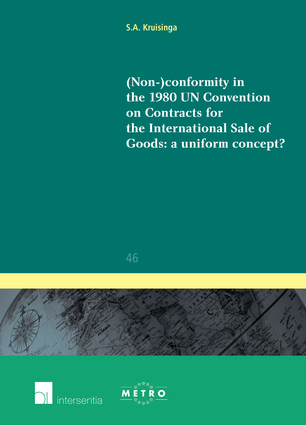Overview
The 1980 UN Convention on Contracts for the International Sale of Goods (CISG) unifies the law governing the rights and obligations arising from a contract for the international sale of goods for the seller and the buyer. The CISG entered into force on 1 January 1988. The current number of 62 contracting States, representing two thirds of the world trade, shows the relevance of this Convention. Moreover, the International Chamber of Commerce (ICC) has published a model for an international sales contract that presupposes the application of the Convention. Since no supranational court exists to safeguard a uniform interpretation of its provisions, the case law from different states on the basis of the CISG needs to be compared. One of the main obligations for the seller under the Convention is to deliver goods which are in conformity with the contract (art. 35 CISG). With respect to this particular obligation, a number of questions have arisen. For example, do the goods delivered need to comply with any public law requirements in the country where the goods will be used? When and how does a buyer have to give notice to the seller of any lack of conformity? Is any fault on the part of the seller required for a buyer to be able to rely on this provision? Who bears the burden of proof? Can a buyer rely on any concurrent claims based on national law, alongside his claim based on lack of conformity? This book contains an analysis of the case law that has been established on the basis of the CISG concerning the aforementioned questions. Special attention has been paid to court decisions in Austria, Belgium, France, Germany, the Netherlands and Switzerland, as well as to arbitral awards by the ICC Court of Arbitration. In this respect, the role of the UNIDROIT Principles of International Commercial Contracts in the interpretation of the CISG has also been analysed. The book provides a unique combination, because it contains both an analysis of the issue of (non-)conformity as such and an overview of the recent case law on this topic, as well as recommendations for international commercial practice. Therefore, this book will be of interest to both academics and legal practitioners.

